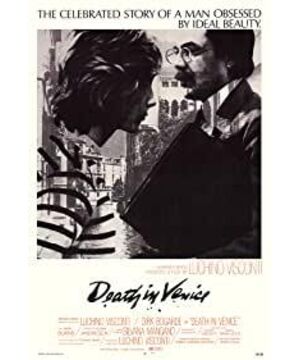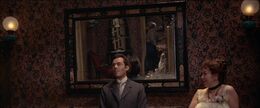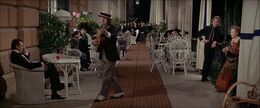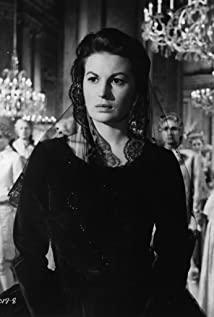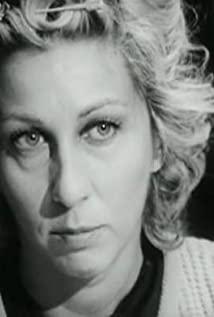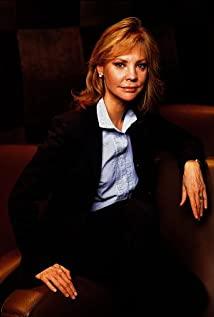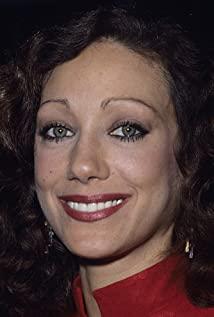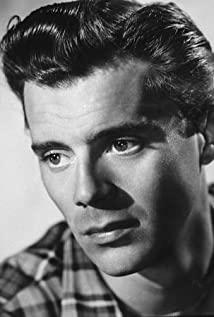I've always been picky about language, but this time I didn't. The story is originally a European background, and various languages are involved. British actors make English sound not so awkward. The main language in the movie is music.
With my immature thoughts and limited vision, I say that this film is not only the most successful adaptation in the history of gay literature, but also the greatest literary adaptation in the entire film industry.
This is of course because I am extremely excited and eager to express my feelings, so I use the words "most". How afraid of using these words, "most", "forever"... I
doubt the relevance of movies and literature for a long time. Bergman said that Film has nothing to do with literature. People always go backwards back and forth from his previous thoughts, just like when I watched Lost in Venice now, and regained the confidence that I had when I wrote movies and literature last year. In fact, this confidence comes from this great film.
And all of this may still come from the artist’s tradition, the pursuit of Greek spirit, masculine beauty, the tradition inherited in the struggle between art and morality, beauty and life. Mahler’s worries and struggling, Mann understood, added his own feelings, wrote a novel when the heart was struggling, and Visconti added his own feelings, and took pictures when the soul’s dependence was exhausted. Movie. It's just such a tradition that connects the three of them, not to mention the exploration of higher artistic pursuits that involve more people.
From a certain level, homosexuality and art are too much related. Beautiful boys are poetry, paintings, and statues in the eyes of artists. They are concretely derived from the concept of unpredictable beauty. Sunny, beautiful, youthful and vitality is the representative of everything. The artist does not hesitate to devote all his talents, energy, and life to him. There are too many examples in history, like the people of Ashenbach.
But Mann himself is not like that. He won’t get nothing like Verlaine or Wilde. He strictly adheres to his behavior with morality. He is more like a mature and wise writer, writing some greater novels throughout his life. He has a complete family and a lofty honor as he seeks the heights of philosophy and awakens the world. It was not the rise of the topic of homosexuality later, and works like Soul Broken Venice can only be suppressed under a heavy mountain of magic and remain unknown. But after all, Mann wrote works such as Soul Breaking Venice. In a period of entanglement and loss of thought, his heart and the great Mahler's music fit in an instant. After Venice, there is a magic mountain. After Man died, people discovered a painter named Paul in his diary.
Such a novella is indeed not too important in Man's long literary career. As a symbolic theme, there are many good works in other ways in the history of literature. What moved is that such a work is from Mann, from his period. In the writing, Ashenbach is deeply self-deprecating, mocking Mahler, or Man himself? In the novel, the position of absolute beauty is placed very high. It discusses the artist's way of pursuing beauty, and discusses ancient Greek philosophers and gods. Reading it down paragraph by paragraph, it turns out that he is only an incarnation of a beautiful boy.
For movies, you can only be impressed by the master's handwriting. It can be said that Visconti has spent most of his life trying to adapt the movie from Broken Heart to Venice, and finally started at a time that he thought was the most suitable. At that moment, it was also the time when his heart began to be fascinated by beauty. Yaman has many men, and so does Visconti, but in the end one is called Berg. It should be said that Visconti has a deep understanding of Mahler and Man, and the resonance with his predecessors is also conceivable. Because of this, he created his own "Venice of Soul Breaking" instead of just adapting a script. He further restored Mahler’s prototype, perhaps more from the perspective of film language. In the novel, the description and discussion of the large section of Mann are gone, and the strong fifth symphony is replaced. Visconti cleverly used another language to create another Venice, and his language appealed to Mahler. I haven't seen such an excellent soundtrack for a long, long time, and there is a touching same-sex story behind it. The movie also interspersed with Mahler’s life story, adding a character that opposes Ashenbach, always thinking that it was himself. In the novel, all the conflicts of Ashenbach's thoughts are shown by two people together in the movie. And Tazio in the movie also has a more seductive temperament than in the novel. In the novel, he is more like an innocent teenager, and in the movie he obviously has a deeper sensitivity to his admirers, perhaps with Visconti’s own sustenance.
Imagine if Man saw a movie, he would be jealous or angry. I can only laugh at the mediocre adaptation, but Visconti has created something more peculiar than his novel. Visconti saw Mahler and shared Mahler, which originally belonged only to The secret of Mahler and Mann. The result of any re-creation is dangerous for the original creator.
Regarding movies, good actors also make the work as great as possible. Dirk Bogarde's acting skills are impressive. Ashenbach's tension, anxiety, caution, attachment, affectation, collapse, every little detail is so well grasped, leaving no trace of pretense. It makes people feel every minute of the changes in the character's psychology. The feeling that he is Ashenbach is so strong that an actor can reach such a state, and he is worthy of the reputation of the best actor in Europe at the time. As for Björn Andresen, I don't think I need to say more. He has left the beauty of Tadzio forever, becoming a symbol of beauty, a classic symbol. He in life is not important to the world. He is not a martyr, and he does not necessarily pursue beauty so much, but he should not regret too much about his life.
In the age of cholera, the dying Venice. Visconti's deep understanding and accurate grasp of that era gave this work more meaning. All the confusions and panics belonging to that era have passed for so long. People have a new Venice, a new life, a new Italy, a new Germany, a new confusion, and a new panic.
But will the pursuit of beauty die over the city?
Whether there will still be Ashenbach in the world, there will be artists with moths fighting the fire, this is a question. Because in this so-called modern new world, people's alienation and division are so natural and cope with it so cleverly that even a deeper degree of madness is no longer possible.
I'm still too pessimistic.
Don't be so much. Not so much. We only need to listen to Mahler, look at the back of Tadzio at the fuzzy junction of the sea and the beach, and use our decadent bodies to eliminate the endless happiness and sublime.
View more about Death in Venice reviews


